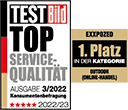Sustainable labels at a glance
TOGETHER FOR A STRONG FUTURE
In the world of outdoor sports, where nature lovers spend a lot of time in the great outdoors, the issues of sustainability and transparency are increasingly coming into focus. More and more manufacturers are intensively addressing the challenge of developing environmentally friendly and socially responsible manufacturing methods for their products. The goal is to protect nature as best as possible to ensure that outdoor sports can continue to be fun for generations to come. Certifications can provide guidance, as they are subject to strict specifications and tests to ensure that products meet the highest quality standards. To provide more clarity, we have compiled a list of the various certifications of our products to give you a comprehensive overview:

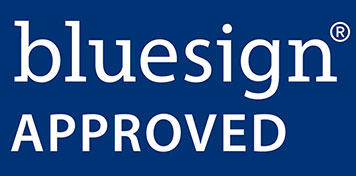
BLUESIGN®
The bluesign® seal pursues the goal of reducing environmental impacts in the textile industry, reducing the industry's ecological footprint and ensuring responsible use of resources and raw materials. This is achieved through strict control and listing of the chemicals used as well as the best possible exclusion of environmentally harmful pollutants from the production chain. At the same time, bluesign® attaches great importance to the health protection of workers. The seal helps to promote social improvements in textile production by creating safe working conditions and paying attention to the safe handling of hazardous substances as well as regular employee training. The criteria for awarding the label are co-developed by independent bodies and the award process is transparent. Comprehensive and sufficiently independent regular inspections guarantee credibility.
For detailed information on BLUESIGN® click here


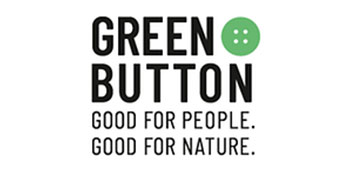
THE GREEN BUTTON
The Green Button is a government seal for sustainable textiles. It sets demanding requirements to protect people and the environment in the global production process of textiles. The special feature: The Green Button checks whether the entire company takes responsibility for the observance of human rights and environmental standards in its textile supply chains. In addition, the Green Button sets requirements for sustainable production processes, which are verified via recognized, credible seals. This combination of requirement for the company and the production processes of the textiles makes the seal unique. The state sets the criteria and conditions for the Green Button. Independent inspection bodies monitor compliance with the criteria.
For detailed information on DER GRÜNE KNOPF click here


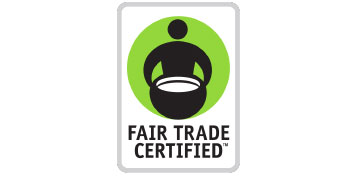
FAIR TRADE CERTIFIED
In addition to the world's best-known FAIRTRADE® label for fair products, there is also the FAIR TRADE CERTIFIED label. Beware, confusion can easily occur as "Fair Trade" is not the same as "Fairtrade". Fair Trade Certified™ is an award-winning, rigorous and globally recognized sustainable sourcing model that improves livelihoods, protects the environment and builds resilient, transparent supply chains. The Fair Trade Certified seal ensures that certified products improve the livelihoods of farmers, fishermen and other producer communities while protecting the environment.
For detailed information onFAIR TRADE CERTIFIED click here


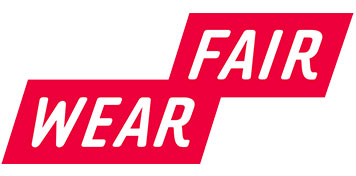
FAIRWEAR
The Fair Wear Foundation (FWF) is an independent, non-profit organization that works with its member companies and other partners such as trade unions, NGOs, factories, business associations and governments to achieve a clear goal: improving working conditions in the garment industry. The Fair Wear Foundation is not only committed to upholding ILO core labor standards and ensuring safe and healthy working conditions, but also aims to ensure living wages for seamstresses. Already 150 brands have joined this commitment.
For detailed information on FAIRWEAR click here


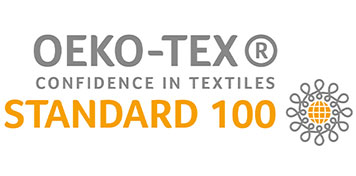
STANDARD 100 BY OEKO-TEX
OEKO-TEX® STANDARD 100 is one of the world's best-known labels for textiles tested for harmful substances. It stands for customer confidence and high product safety. If a textile article is marked with the STANDARD 100 label, all components of this article, i.e. also all threads, buttons and other accessories, have been tested for harmful substances and the article is therefore harmless to health. All components of an article must meet the strict OEKO-TEX® test criteria: From the coating, the outer fabric and the sewing thread to the application and zipper. The test criteria are uniform worldwide and are updated at least once a year based on new scientific findings or legal requirements. The tests and certifications are carried out exclusively by neutral and independent test institutes of the OEKO-TEX® Association. The validity of the certification can be checked at any time via the number entered on the label.
For detailed information on STANDARD 100 click here


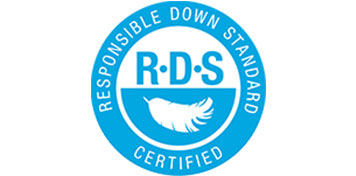
RESPONSIBLE DOWN STANDARD (RDS)
The Responsible Down Standard (RDS) incentivizes the down and feather industry to treat ducks and geese humanely and rewards organizations that follow this path. The standard also gives businesses and consumers a way to know what's in the products they buy. Individual farms are certified by independent certifiers during annual audits. Material is tracked from farm to final product using transaction certificates that are subject to Textile Exchange's Content Claim Standard (CCS) requirements.
For detailed information on RESPONSIBLE DOWN STANDARD click here


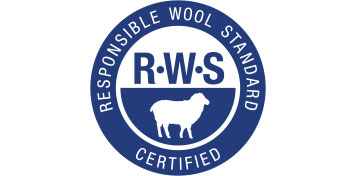
RESPONSIBLE WOOL STANDARD (RWS)
The Responsible Wool Standard (RWS) is a voluntary and independent certification that ensures that the wool for textile production comes from farms with animal welfare. The focus is on animal welfare, as well as soil care and compliance with social aspects in production. Practices such as mulesing and branding are prohibited. This label is particularly useful to avoid buying wool from factory farms.
For detailed information on RESPONSIBLE WOOL STANDARD click here


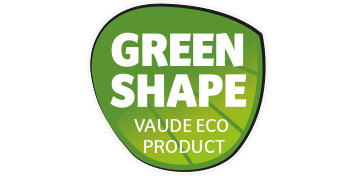
GREEN SHAPE
The VAUDE Green Shape label stands for a commitment to manufacturing environmentally friendly and functional products from sustainable materials. Green Shape is an environmental standard that mainly concerns environmental aspects, but VAUDE always ensures that fair working conditions are observed for all products. The evaluation criteria are extremely demanding, transparent and are regularly revised to take into account the entire life cycle of the products. Already in the design of the products, VAUDE attaches importance to creating durable and repairable outdoor equipment. This is taken into account by Green Shape from the very beginning. Strict criteria must also be met during the development phase, allowing only sustainable materials and technologies. Production takes place in an environmentally friendly manner and in compliance with fair working conditions, with the latter being monitored by the independent Fair Wear Foundation. The care of Green Shape products is also carried out under ecological aspects and should be energy-saving and possible without the use of chemical cleaning agents. The end of the product life cycle is also strictly ecologically regulated: Disposal should be possible without special measures, or the product should be recyclable.
For detailed information on GREEN SHAPE click here


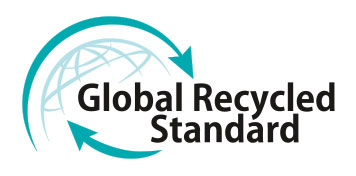
GLOBAL RECYCLED STANDARD (GRS)
The GRS is intended to meet the requirements of companies that want to verify the recycled content of their (finished and intermediate) products, as well as to ensure that social, environmental and chemical regulations are met in production. The aim of the Global Recycled Standard is to define requirements for correct specification of substances and materials used and for correct working conditions. Furthermore, ecological and chemical risks are to be minimized. Companies addressed are active in the cotton processing, spinning, weaving, knitting, dyeing, printing and sewing industries.
For detailed information on GLOBAL RECYCLED STANDARD click here


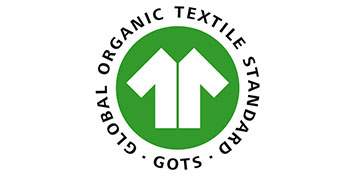
GLOBAL ORGANIC TEXTILE STANDARD (GOTS)
The Global Organic Textile Standard (GOTS) is the world's leading textile processing standard for organically produced natural textiles. GOTS stands for strict ecological and social criteria, supported by independent certification along the entire textile chain from the field to the end product.
For detailed information on GLOBAL ORGANIC TEXTILE STANDARD (GOTS) click here


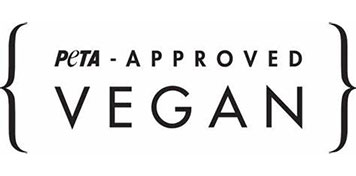
PETA-APPROVED VEGAN
PETA-Approved Vegan is the quality seal with the highest animal welfare standard. Since materials of animal origin cause animal suffering, only vegan products are labeled. So products without animal materials such as fur, leather, silk, wool and without animal components such as feathers, mother-of-pearl or horn buttons. In addition, hidden animal ingredients in clothing and other textiles, such as coatings, dyes or adhesives, are not visible on the label. The PETA-Approved Vegan seal thus helps consumers to recognize fashion without animal suffering at a glance.
For detailed information onPETA-APPROVED VEGAN click here


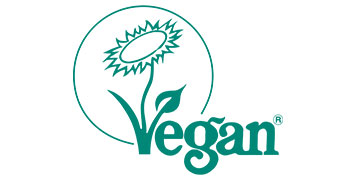
THE VEGAN SEAL OF THE VEGAN SOCIETY
The Vegan Trademark, also known as the Vegan Flower in Germany, is a globally recognized brand for labeling vegan products. Companies have been using this seal since the 1990s to make it clear that their products are free of animal ingredients and have not been tested on animals. The Vegan Society's Vegan Flower seal is the international standard for vegan products and includes an impressive range of more than 60,000 registered products. This seal can be awarded to a wide range of products including cosmetics, clothing, food, beverages, household items and more.
For detailed information on VEGAN TRADEMARK click here


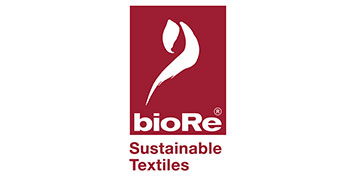
BIORE® SUSTAINABLE TEXTILES®
Textiles bearing the bioRe® Sustainable Textiles quality label are equipped with a unique code that allows the complete journey of the garment to be traced back to the cultivation of the raw materials. Transparency along the entire supply chain is ensured by Remei's strict control system and independent certification bodies. In addition, Remei's digital traceability tool my-trace provides access to authentic stories, photos and films from the manufacturing process. Farmers are actively involved in decision-making processes and receive a guarantee from Remei for the purchase of their organic cotton crop. They are granted a 15% premium over the local market price.
For detailed information on BIORE® SUSTAINABLE TEXTILES click here


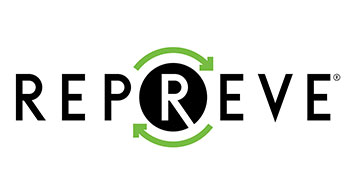
REPREVE®
Repreve® is recycled polyester from plastic bottles. By using plastic bottles to make polyester, non-renewable resources are conserved and fewer greenhouse gases are produced. Repreve polyester has the same properties and appearance as conventional polyester, but is more environmentally friendly. One difference between conventional recycled polyester and Repreve® recycled polyester is that Repreve® is traceable. Each individual fiber has what's called a Fiberprint™, a signature that verifies Repreve content versus volume and certifications. We use Repreve polyester in shirts and in Sira pants and shorts - soft, comfortable pieces that make a valuable contribution to the environment. Look for the Repreve logo.
For detailed information on REPREVE® click here


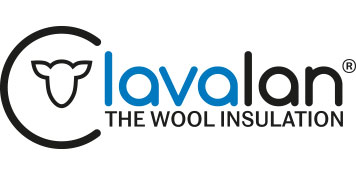
LAVALAN®
lavalan® - the wool insulation is the highly functional insulation made from 100% natural and renewable raw materials, virgin wool and corn. Synthetic materials are often used for the insulation of clothing and accessories. Yet nature already provides us with highly functional and complex raw materials. Wool is one such fiber that, thanks to its unrivaled breathability, ensures a comfortable warmth and a constant body climate, individually adapted to the intensity and to the most varied weather conditions. In addition to its thermoregulatory properties, wool is also able to neutralize bad odors, contributing to longer use without unnecessary washing. All of this makes lavalan the perfect insulation for everyday wear, travel and multi-day mountain adventures. The wool for lavalan comes exclusively from European countries and is selected according to the highest quality and animal welfare standards. European wool is mulesing-free. For lavalan, animal welfare is very important, both during rearing and shearing.
For detailed information on LAVALAN® click here


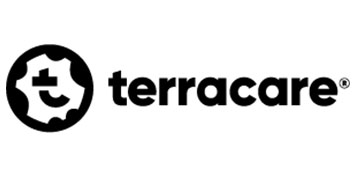
TERRACARE® LEATHER
terracare® leather means exemplarily produced performance leather from Germany. With this promise, we want to become the leading ingredient brand for environmentally friendly produced performance leather" explains Thomas Heinen, Managing Director of Lederfabrik Heinen. "Consumers are increasingly looking for sustainable alternatives. With terracare® leather, we offer the environmentally conscious leather lover a convincingly high-performance product with which they do not have to make any compromises.
For detailed information on TERRACARE® LEDER click here


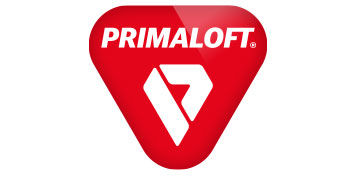
PRIMALOFT®
PrimaLoft is a hidden product that you can feel but mostly not see. But even though the insulation materials are hidden inside, they have a direct impact on people's everyday lives. PrimaLoft is known as a synthetic alternative to down that, unlike the natural product, keeps you warm even when wet. PrimaLoft mainly develops such "invisible" technologies that enhance the performance of garments and are good for the environment at the same time. No matter what the product looks like in the end, PrimaLoft makes sure that you feel comfortably warm and can enjoy the moment. PrimaLoft specifically produces materials with which partners as well as end consumers can fully develop the potential of people, products and nature in harmony. This goal is behind all of the company's innovations. In this innovation work, PrimaLoft focuses on two guiding principles: Performance and Sustainability. With every new PrimaLoft development or update, the company aims to offer the best possible performance while reducing the environmental impact as much as possible. At the core of its mission, PrimaLoft pushes the boundaries of what is possible in materials research to achieve the perfect balance between performance and sustainability.
For detailed information on PRIMALOFT® click here


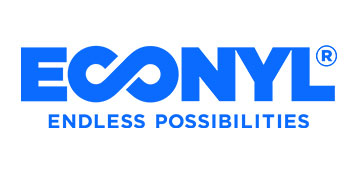
ECONYL® REGENERATED NYLON
ECONYL® yarn is a 100% regenerated nylon fiber made from pre and post-consumer nylon waste otherwise polluting the Earth, like fishing nets, carpet flooring and industrial plastic rescued from all over the world. Through a radical regeneration and purification process, the nylon waste is recycled right back to its original purity. That means ECONYL® regenerated nylon is exactly the same as fossil-based nylon.
For detailed information on ECONYL®-NYLON click here


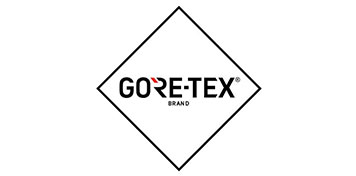
GORE-TEX®
For more than 40 years, Gore product technologies have offered the highest level of comfort and protection so that you can enjoy your activities to the full. The scientific research that goes into the development of the materials is extraordinary and trend-setting. GORE-TEX offers two highly functional product ranges: The original GORE-TEX product range for premium waterproof protection and the new GORE-TEX INFINIUM™ product range for dry weather conditions. Whichever technology you choose: You get a powerful upgrade in comfort and protection.
For detailed information on GORE-TEX® click here


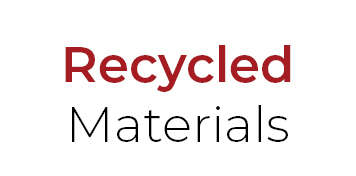
RECYCLED MATERIALS
Reusable materials are used in the manufacture of outdoor products, which should help to conserve resources. Many manufacturers also mark their products with appropriate labels and designations.

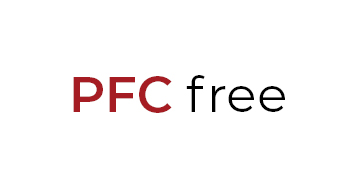
PFC FREE
Products that carry the "PFC Free" or "PFC-free" label guarantee that they do not contain perfluorinated and polyfluorinated chemicals (PFCs). These PFCs are known to have water-, dirt- and oil-repellent properties, which is why they are often used as chemical coatings in outdoor and functional clothing. It is important to note that PFCs degrade extremely slowly and can therefore remain in the environment for a very long time. In addition, these chemicals pose a potential health risk to humans. According to Greenpeace, PFCs can be detected even in remote mountain lakes or in the blood of polar bears in the Arctic, far from their original source. Some manufacturers such as Vaude, Jack Wolfskin or Picture deliberately avoid PFCs in their products in order to minimise these environmental impacts.

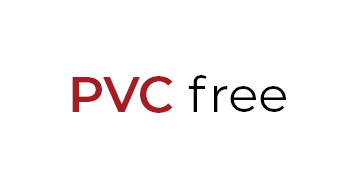
PVC FREE
PVC (polyvinyl chloride) is an extremely stable and durable plastic. However, there are aspects of concern associated with PVC, particularly in relation to the phthalates it contains, which are suspected of being harmful to health. In addition, there are significant environmental issues to consider during the production of PVC and its disposal. PVC is practically non-recyclable, as the various polymers can only be separated from each other with an extremely high expenditure of energy and water. Burning PVC produces toxic and hazardous substances. In Germany, the landfilling of PVC is prohibited, as plasticisers and other substances such as heavy metals can enter the soil, air and groundwater. It is a challenge to avoid PVC completely, as it is the third most commonly used plastic. Also in the outdoor industry, more and more manufacturers are trying to find alternatives to make their products without PVC.

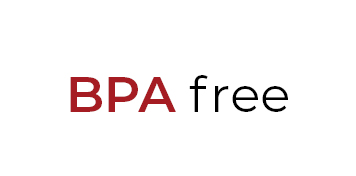
BPA FREE
Products labelled "BPA-free" do not contain bisphenol A. Information on whether a product is BPA-free can be found in the article description. The substance bisphenol A is used in the production of polycarbonate and epoxy resin, a plastic that has many applications. Besides its use in home and vehicle construction, polycarbonate is also used in everyday consumer products such as DVDs and smartphones, as well as for food packaging and plastic bottles. BPA enters the human organism mainly through food, air or drinking water. The consequences of BPA intake in detail are still disputed among experts. However, different studies have shown possible effects on humans in connection with long-term BPA intake in high quantities. According to the Federal Environment Agency, BPA can lead to cardiovascular diseases, liver problems and diabetes. And even lead to impaired fertility.

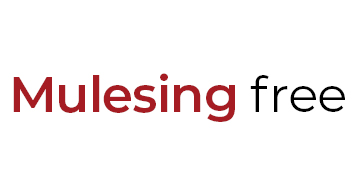
MULESING FREE
Mulesing is a surgical practice widely used in sheep farming. It involves removing strips of flesh and skin from the perianal area of Merino sheep to prevent an infectious disease caused by the larvae of flies. These larvae lay their eggs in the sheep's tissues, which can lead to severe infections and even death. For this reason, mulesing is used to prevent infection. In this procedure, pieces of meat around the anus and genital region are removed from the lambs at 8-12 weeks of age to create a smooth, scarred area where parasites cannot settle. However, this procedure is controversial as it is often done without anaesthesia and without proper wound care. Wool without mulesing comes from animals where the widespread and controversial procedure has not been performed.

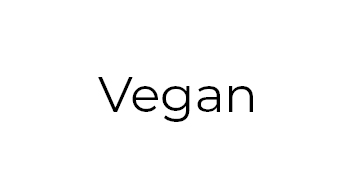
VEGAN
Vegan clothing means that it is 100% free of animal ingredients. This excludes leather, fur, wool, down and silk. The main goal is not to exploit, torture or kill any animal for human needs. Fortunately, many vegan alternatives are available, such as mushroom-, cactus- or pineapple-based leather and silk made from soy. Manufacturers are focusing on plant-based or synthetic fibers such as cotton, bamboo, linen, polyester, nylon, acrylic, viscose, cork, hemp, lyocell (like Tencel), modal, polyurethane and spandex in place of animal-based materials.






